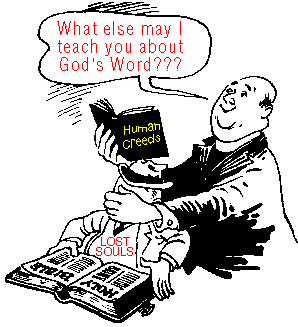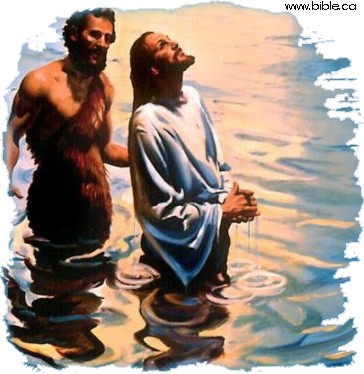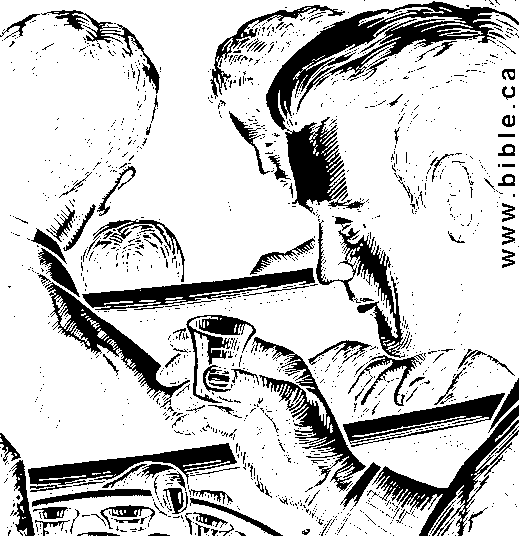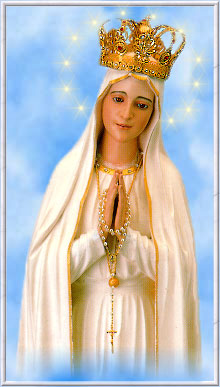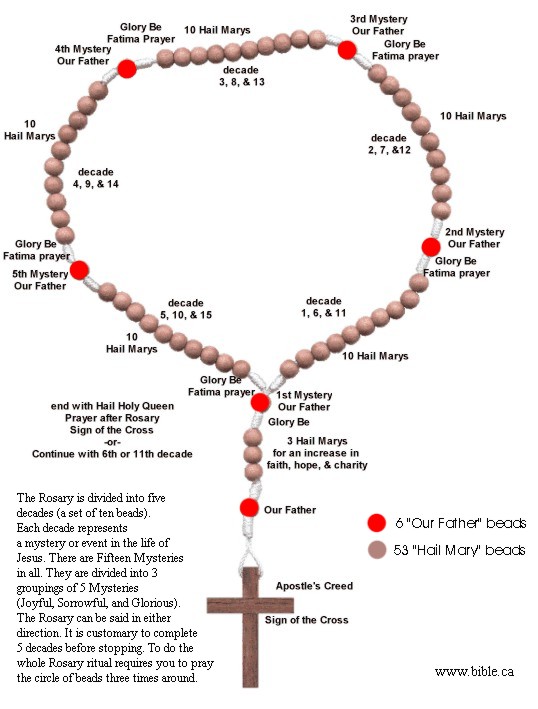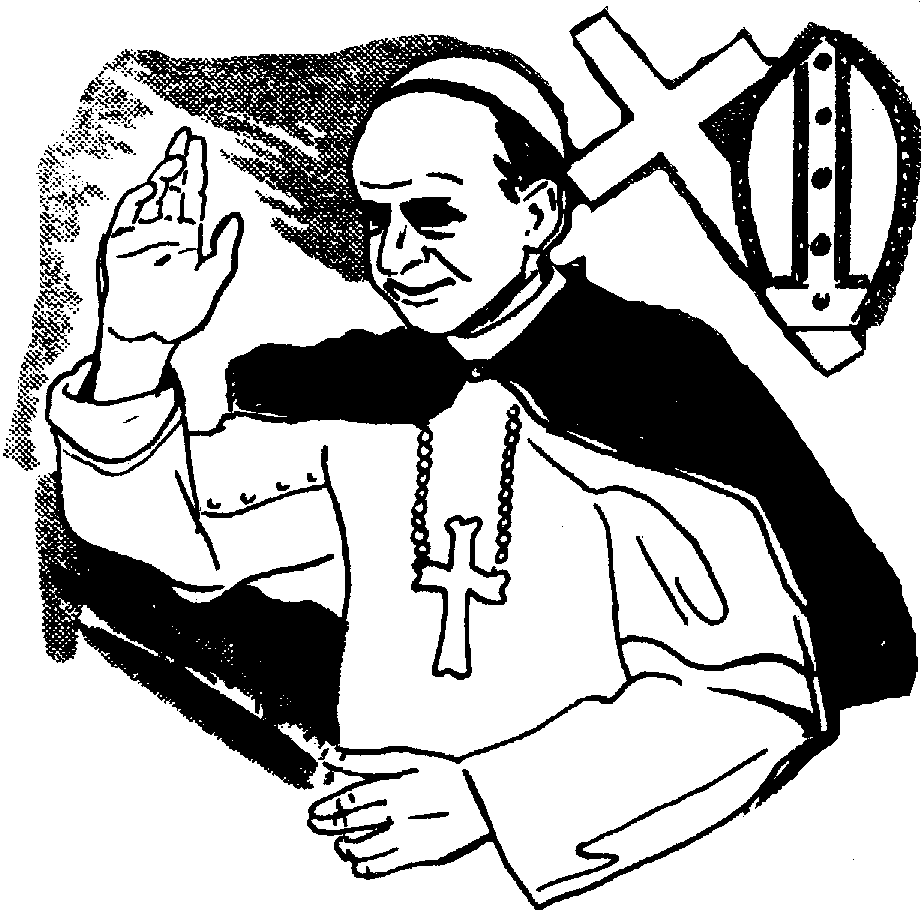Ce site est un travail de recherche et des notes sur les erreurs doctrinales de l'Église catholique romaine, et une enquête de son histoire. (Ecrit par scribe Valdemir Mota de Menezes)
jeudi 13 septembre 2012
FALSA IRMÃ LUCIA
As pessoas estão sempre subestimando a inteligência dos outros. A Igreja Católica possui uma história milenar, e ela é reincidente por milhares de vezes nos mesmos erros. Enganar os fiéis é um cotidiano no catolicismo. O caso da falsa irmã Dulce é só mais um dos casos épicos que se amontoam na Historia da Igreja Católica. (Comentário do Valdemir Mota de Menezes, o Escriba)
mardi 14 août 2012
INQUISICIÓN CATÓLICA CONTRA EL PROSTESTANTISMO
2
La Inquisición Católica contra el Protestantismo... por scribevaldemir
3
La Inquisición Católica contra el Protestantismo... por scribevaldemir
4
La Inquisición Católica contra el Protestantismo... por scribevaldemir
5
La Inquisición Católica contra el Protestantismo... por scribevaldemir
mercredi 8 août 2012
PADRE CATÓLICO DIZ: APARIÇÃO DE FÁTIMA É FRAUDE
vendredi 3 août 2012
REFORMA GREGORIANA
Aula: 28
Temática: O Império germânico e o papado:
a Reforma Gregoriana e a questão das investiduras
Na aula de hoje e na subseqüente você vai conhecer as disputas
na Alemanha e na Itália, paises que mergulharam na
crise do período XIV-XV. Não é a toa que ambos só surgiram
como países no século XIX. Nesta aula, você vai conhecer a evolução do
conflito entre o papado e o Império Germânico, a chamada Querela das
Investiduras — momento em que a idéia imperial voltou ao cenário europeu
e a Igreja Católica sofre uma de suas mais profundas reformas. Nesse
período, Império e Igreja estiveram tentando mostrar sua força e acabaram
entrando em rota de colisão.
No fim do século IX, com o declínio do Império Carolíngio,
o território do reino foi dividido em três unidades: ocidental
(francesa), oriental (alemã) e a parte italiana. Tal divisão,
após muitos percalços deu origem aos três Estados nacionais. O império
então passou a ser uma abstração sem poder real: na Alemanha e no norte
da Itália os reis precisavam viajar para fazer valer seus direitos feudais.
Essa situação perdurou até o reinado de Oto I que, com astúcia e perseverança
conseguiu conquistar a Itália e submeter os magiares. Estes eram
exímios cavaleiros e foi preciso reunir cerca de 8 mil homens e encurralar
os magiares contra um rio para vencê-los. Com o feito, Oto I foi coroado
Imperador em Roma em 962, mostrando uma superioridade militar a oeste
do Adriático que há muito tempo não se via.
Diplomaticamente e sem suprimir a dignidade da nobreza, Oto I reduziu
progressivamente os seus poderes e buscou ampliar seus poderes de
soberano. Carregado de simbologia carolíngia e romana, Oto I conseguiu
transmitir seu poder para sua própria família sagrando sua esposa e filho
em Roma e constituindo a hereditariedade no trono imperial.
O seu neto Oto III (983-1002) transferiu a capital do império para Roma. Ele
pretendia dominar sem violência as várias entidades políticas que dividiam
a cristandade, constituindo um poder moral, universal e pacifista.
O Império Germânico assim fortalecido e imbuído da simbologia imperial
retoma uma questão importante: a da base do poder. Uma das justificativas
dada por reis e imperadores para a origem do seu poder era o mandato
divino, algo que foi questionado pela igreja já em princípios do século V.
Todavia, esse conflito entre poder secular e temporal permanecia adormecido,
tendo em vista não haver ninguém com poder político e militar para
dominar a Europa e fazer ressurgir a idéia de um Império — fato que começou
a mudar com Oto I. Assim, ocorreu um recrudescimento das críticas
da Igreja ao exercício do poder Imperial, com a Igreja tentando se livrar
da influência do Império, advogando a sua supremacia. Antes de esboçar
esse conflito retomaremos a conjuntura da Igreja.
A situação era marcada pelo nicolaísmo e pela simonia.. Nicolaísmo era o
nome dado a degradação do clero, pois a maioria dos religiosos vivia como
leigos, carregava armas e não respeitava o celibato. Já a simonia era o
espírito de lucro embrenhado nas igrejas, manifesto como o comércio de
objetos e relíquias sagradas, o tráfico dos sacramentos ou mesmo o leilão
dos cargos eclesiásticos. Essas situações estavam intimamente ligadas
ao mesmo problema: a participação de leigos na distribuição dos cargos
eclesiásticos. Os senhores feudais, nobres e reis utilizavam a nomeação
de religiosos submissos a sua vontade, sem levar em consideração a dignidade
moral, como forma de tomar as rendas do altar e obter favores do
clero.
Para alterar esse estado de coisas ocorreu a chamada Reforma Gregoriana,
que tentou exaltar e glorificar a posição da Igreja Romana. Na Reforma
Gregoriana, a estrutura da Igreja Católica ganhou um componente centralizado
sob a égide do papa, que muito se assemelhou a uma monarquia. A
reforma dava ao papa o caráter de infalibilidade e estipulava a livre eleição
do pontífice que era escolhido pelo clero romano. Para glorificar a Igreja, o
papa recebeu a tiara e o manto púrpura, revivendo o mito imperial.
Assim, no mesmo período vemos tanto o Império Germânico quanto o
Papado tentando reviver o poder, o esplendor e a simbologia do Império
Romano. Assim, os dois poderes ou entravam em acordo sobre o papel de
cada um ou se lançavam ao conflito cujas bases estavam dadas.
Em 1075 Gregório VII (1073 – 1085) se esforçou para aplicar a idéia de
que nenhum leigo poderia interferir na nomeação de clérigos para a Igreja.
Ele encontrou resistências entre os soberanos que perderam parte de seus
lucros. Esse conflito ficou conhecido como Querela das investiduras e a
resistência mais acirrada foi a do Imperador Germânico, pois este contava
justamente com o apoio desses cargos para manter seu poder. O ápice
desse conflito entre Império e papado ocorreu, então, sob o pontifício de
Gregório VII que, após ter coroado Henrique IV, chegou a excomungá-lo,
algo inédito.
A questão das investiduras destroçou o Império Germânico, que entrou em
guerra civil. Já a Igreja, no pontifício de Inocêncio III (1198-1216) conse118
guiu resgatar o poder eclesiástico fundando um Estado papal para proteger
Roma, utilizando a popularidade das ordens mendicantes, mas também
tendo a França como aliada. O novo Estado submeteu a Inglaterra e reformou
a Igreja para acabar com os descontentamentos. Todavia, com
a morte de Inocêncio III, retornaram as disputas com o império e com o
reino francês. Essas últimas desavenças resultaram na transferência do
pontifício para Avignon, na França, a partir do que, ocorreu o chamado
“afrancesamento” do papado.
Na aula de hoje você conheceu o conflito entre duas importantes
organizações do período a Igreja e o Império Germânico,
tendo como base a Querela das Investiduras. Esse
conflito entre papado e império aitngiu a Itália que vai ser o assunto da
próxima aula.
mardi 10 juillet 2012
EX SACERDOTE CATOLLICO LUCA DE PERO
jeudi 28 juin 2012
HISTÓRIA SECRETA DO VATICANO
HISTÓRIA SECRETA DO VATICANO por scribevaldemir
mardi 19 juin 2012
HOW THE CATHOLIC CHURCH VIEWA THE BIBLE
How the Catholic church views the Bible
Below are the kinds of replies you can expect from a Roman Catholic priest if you ask him about the contents of this Bible study.
|
|
Is the Roman Catholic church the church you read about in the Bible?
o YES NO o
By Steve Rudd
HUMAN TRADITION
Human tradition and man made doctrine is apostasy
FACT: The Pope teaches that he can change what is in the Bible if he wants.
Question #1: Did Jesus say it was OK for man to change what the word of God teaches for man-made Catholic doctrine?
Answer: Mark 7:7-9 o YES NO o
"'But in vain do they worship Me, Teaching as doctrines the precepts of men.' "Neglecting the commandment of God, you hold to the tradition of men." He was also saying to them, "You are experts at setting aside the commandment of God in order to keep your tradition." Mark 7:7-9
By Steve Rudd
CATHOLICS ARE UNWILLING
Catholics are unwilling to defend their faith
FACT: When Roman Catholics are challenged from the Bible to defend their faith, they are unwilling or unable to defend what they believe and say the priest has the answer and never search the truth out for themselves. Priests and Bishops never get permission to have open public Bible discussions with honest Bible students like ourselves. Imagine a local parish priest publicly defending infant baptism against a Christian who taught the practice contradicted the Bible! It never happens! Forget what the Bible says, just trust the priest!
Question #1: Should a Christian be unable to defend what they believe from the Bible without the help of priests?
Answer: 1 Peter 3:15 o YES NO o
"sanctify Christ as Lord in your hearts, always being ready to make a defense to everyone who asks you to give an account for the hope that is in you, yet with gentleness and reverence" 1 Peter 3:15
UNDERSTAND THE BIBLE
Every Christian can understand the Bible by merely read it.
| FACT: Catholics are taught that only the priests can understand the Bible and the common man in the pew cannot understand the Bible without the priests help. |
|
Question #1: Do the scriptures say that when anyone reads the Bible, they can understand for themselves?
Answer: Ephesians 3:4 o YES NO o
"By referring to this, when you read you can understand my insight into the mystery of Christ" Ephesians 3:4
By Steve Rudd
ORIGINAL SIN
Original sin is false doctrine
FACT: Catholics say that infants inherit their parent's sin at conception and are therefore spiritually condemned and totally wicked.
Question #1: Is the doctrine of inherited original sin found in the Bible?
Answer: Ezekiel 18:20 o YES NO o
"The person who sins will die. The son will not bear the punishment for the father's iniquity, nor will the father bear the punishment for the son's iniquity; the righteousness of the righteous will be upon himself, and the wickedness of the wicked will be upon himself." Ezekiel 18:20
Question #2: Did Jesus say little children are better models of purity and conduct than adults?
Answer: Matthew 18:2-3 o YES NO o
"And He called a child to Himself and set him before them, and said, "Truly I say to you, unless you are converted and become like children, you will not enter the kingdom of heaven." Matthew 18:2-3
BAPTISM IS FULL IMMERSION
Baptism is full immersion in water, not sprinkling.
| FACT: The Catholic church baptizes babies by sprinkling a little water on them. Historical note: Greek work for baptism literally means immersion. There are separate words in Greek for sprinkling, pouring and immersion. Only the Greek word for immersion is ever used for Baptism in the Bible. The first recorded case of sprinkling was in 257 AD to someone on a sick-bed. It was then an exception to the rule and brought about fierce opposition from the whole church. Not until 757 AD did the church accept sprinkling in such sick-bed cases of necessity. It wasn't until 1311 AD, when the Catholic council of Ravenna, declared that sprinkling was and acceptable substitute for immersion and from that time forward sprinkling replaced immersion in the Roman Catholic church. The Orthodox church refused sprinkling and still immerses to this day. |
|
Question #1: Was Jesus baptized by full immersion in the Jordan River?
Answer: Matthew 3:16 o YES NO o
"After being baptized, Jesus came up immediately from the water; and behold, the heavens were opened, and he saw the Spirit of God descending as a dove and lighting on Him" Matthew 3:16
Question #2: When Philip baptized the Eunuch, did both of them go into the water?
Answer: Acts 8:38-39 o YES NO o
"And he ordered the chariot to stop; and they both went down into the water, Philip as well as the eunuch, and he baptized him. When they came up out of the water, the Spirit of the Lord snatched Philip away." Acts 8:38-39
Question #3: Can babies be baptized since they do not first believe?
Answer: Mark 16:16; Acts 8:36-37 o YES NO o
"He who has believed and has been baptized shall be saved; but he who has disbelieved shall be condemned. Mark 16:16
"As they went along the road they came to some water; and the eunuch said, "Look! Water! What prevents me from being baptized?" And Philip said, "If you believe with all your heart, you may." Acts 8:36-37
Question #4: Can babies be baptized since they do not first repent?
Answer: Acts 2:38 o YES NO o
"Brethren, what must we do?" Peter said to them, "Repent, and each of you be baptized in the name of Jesus Christ for the forgiveness of your sins; and you will receive the gift of the Holy Spirit. Acts 2:37-38
By Steve Rudd
WORSHIPPING IDOLS
Worshipping idols, icons and images violates the 2nd commandment.
FACT: Catholics regularly bow down to idols, icons and images of Jesus, Mary and the apostles, kissing the feet of the statues and praying to them.
Historical note: The Pope deleted the 2nd of the 10 commandments so they could use statues & images in worship. They split the 10th commandment on coveting into two commandments so they could still have 10 in number. Don't believe this? Look at the list of 10 commandments published by the Roman Catholic church! The issue here is not how the Ten Commandments are numbered, rather the issue is that most published lists of the 10 commandments do not include the words, "you shall not for yourself an idol". Open your Catholic Bible and look for yourself!
Question #1: Does the 2nd commandment approve of bowing down and kissing idols?
Answer: Exodus 20:4 o YES NO o
"You shall not make for yourself an idol, or any likeness of what is in heaven above or on the earth beneath or in the water under the earth. You shall not worship them or serve them." Exodus 20:4-5
By Steve Rudd
OBSERVANCE OF SPECIAL DAYS CONDEMNED
Observance of special days condemned
| FACT: The Roman Catholic church has invented an entire yearly calendar of non Biblical holy Days like Lent, Easter, Christmas. |
|
Historical note: No one prior to 335 AD celebrated the birthday of Jesus. The word "Christmas" (Christ + Mass) was first used in 1038 AD. Before 335 AD, the pagan cult of Mithra, the Iranian "god of light", had long celebrated December 25 as Mithra's birthday. December 21, being the winter solace, marked the beginning of days with increasing amount of light, hence December 25 celebrated Mithra's triumph over darkness. Because the pagan festival that celebrated Mithra's birthday was so popular, the Roman Catholic church adopted the day, but changed the meaning from the birthday of Mithra, the "god of light", to Christ's birthday, God the son, "light of the world". The old meaning of December 25 was connected with Mithra's triumph over physical darkness. The new meaning celebrated Jesus triumph over spiritual darkness. Eventually Christmas became dominant, the Mithra cult went extinct and today this origin is not widely known among Roman Catholics. None of the apostles or the early church celebrated the birthday of Jesus.
Question #1: Did the early Christians celebrate Christmas, Lent and Easter?
Answer: Galatians 4:10-11 o YES NO o
"You observe days and months and seasons and years. I fear for you, that perhaps I have labored over you in vain." Galatians 4:10-11
Question #2: Are Christians told to remember the Lord's Death every Sunday?
Answer: Acts 20:7 o YES NO o
"On the first day of the week (Sunday), when we were gathered together to break bread, Paul began talking to them, intending to leave the next day, and he prolonged his message until midnight." Acts 20:7
By Steve Rudd
LATIN MASS FORBIDDEN
Latin Mass forbidden
FACT: For over 1000 years, the Roman Catholic church often conducts their mass services entirely in the Latin language, when no one sitting in the pews understands the Latin language. Most Roman Catholics who have sat through such a Latin Mass service have wondered what is going on. It was not until 1965 AD that the Pope finally understood 1 Cor 14:19 and allowed masses to conducted in the same vernacular language of the local people. (English in North America)
Question #1: Is Latin Mass forbidden in the Bible when no one in the pews understands Latin?
Answer: 1 Corinthians 14:19 o YES NO o
"in the church I desire to speak five words with my mind so that I may instruct others also, rather than ten thousand words in an unknown tongue." 1 Corinthians 14:19
10. Observance of special
By Steve Rudd
PETER WAS MARRIED
Peter was married
FACT: Most Catholics believe that Apostle Peter was the first Pope and was not married. As one Roman Catholic leader said, "if Peter had a wife when he first met Jesus, he got rid of her quick!"Question #1: Did Peter have a wife?
Answer: Mark 1:30 o YES NO o
"Now Simon's mother-in-law was lying sick with a fever; and immediately they spoke to Jesus about her." Mark 1:30
Question #2: Did Paul say all the apostles including Peter had a right to be married?
Answer: 1 Corinthians 9:5 o YES NO o
"Do we not have a right to take along a believing wife, even as the rest of the apostles and the brothers of the Lord and Cephas?" 1 Corinthians 9:5
By Steve Rudd
BISHOPS MUST BE MARRIED
Bishops must be Married.
FACT: In 1079 AD celibacy was first enforced for priests and bishops by Pope Gregory VII. Before this time, they were permitted to marry.
Question #1: Does the Bible teach that a bishop (overseer) must be married AND ALSO have children as one of the conditions of being qualified to be a bishop?
Answer: 1 Timothy 3:2-5 o YES NO o
"A bishop, then, must be above reproach, the husband of one wife, temperate, prudent, respectable, hospitable, able to teach, not addicted to wine or pugnacious, but gentle, peaceable, free from the love of money. He must be one who manages his own household well, keeping his children under control with all dignity (but if a man does not know how to manage his own household, how will he take care of the church of God?)" 1 Timothy 3:2-5
Question #2: In the very next chapter of the Bible after bishops are told they must be married with children, does the Holy Spirit warn that "forbidding to marry" is a "doctrine of demons"?
Answer: 1 Timothy 4:1-3 o YES NO o
"But the Holy Spirit explicitly says that in later times some will fall away from the faith, paying attention to deceitful spirits and doctrines of demons, by means of the hypocrisy of liars seared in their own conscience as with a branding iron, men who forbid marriage and advocate abstaining from foods which God has created to be gratefully shared in by those who believe and know the truth." 1 Timothy 4:1-3
By Steve Rudd
ALL CHRISTIANS ARE PRIESTS
All Christians are priests
FACT: The Pope decided to reserve the title of "priest" to worn by church leaders only. The average pew dwelling Catholic never refer to themselves as "priests". In fact if a lay Catholic started calling himself a "priest", he would be rebuked by "the parish Priest"!
Question #1: Did Jesus make all Christians to be priests, including the average member in the pew?
Answer: 1 Peter 2:5,9; Revelation 1:6; 5:10 o YES NO o
"you (all Christians) also, as living stones, are being built up as a spiritual house for a holy priesthood, to offer up spiritual sacrifices acceptable to God through Jesus Christ. " 1 Peter 2:5
"But you (all Christians) are a chosen race, a royal priesthood, a holy nation, a people for God's own possession, so that you may proclaim the excellencies of Him who has called you out of darkness into His marvelous light; " 1 Peter 2:9
"Jesus has made us (all Christians) to be a kingdom, priests to His God and Father—to Him be the glory and the dominion forever and ever. Amen." Revelation 1:6
"You have made them (all Christians) to be a kingdom and priests to our God; and they will reign upon the earth." Revelation 5:10
By Steve Rudd
ALL CHRISTIANS ARE SAINTS
All Christians are saints
FACT: The Pope says only very special dead Catholic people qualify to be called "saints". For example, Pope John Paul II could not make Mother Teresa a saint (official canonization) until after she was dead. The average Catholic in the pew is never called a "saint" dead or alive! In fact if a pew dwelling Catholic started calling himself a "saint", he would be rebuked by the parish priest!
Question #1: Was every living Christian in the church in Corinth called a saint?
Answer: 1 Corinthians 1:2 o YES NO o
"To the church of God which is at Corinth, to those who have been sanctified in Christ Jesus, saints by calling, with all who in every place call on the name of our Lord Jesus Christ, their Lord and ours" 1 Corinthians 1:2
Question #2: Did Paul write the book of Ephesians to dead saints?
Answer: Ephesians 1:1 o YES NO o
"Paul, an apostle of Christ Jesus by the will of God, To the saints who are at Ephesus and who are faithful in Christ Jesus" Ephesians 1:1
Question #3: Was the average Christian in the church at Philippi called a saint, in distinction to bishops and deacons?
Answer: Philippians 1:1 o YES NO o
"Paul and Timothy, bond-servants of Christ Jesus, To all the saints in Christ Jesus who are in Philippi, including the overseers and deacons" Philippians 1:1
Question #4: Was every Christian living in Rome called to be a saint?
Answer: Romans 1:7 o YES NO o
"to all who are beloved of God in Rome, called as saints: Grace to you and peace from God our Father and the Lord Jesus Christ." Romans 1:7
By Steve Rudd
COMMUNION CUP
Every Christian drinks of the communion cup
FACT: Although Roman Catholics are permitted to eat the bread (body) of the Lord's Supper, they are generally not allowed to drink the wine (blood) of the Lord's Supper, as any Catholic knows from his own experience from attending Mass. (Except on rare special occasions.) The laity (the people in the pews) are withheld the cup of the Lord and it is usually reserved for church leaders only. Yes there are denominations within the Roman Catholic "communion" where some RC sects actually offer the juice, but most Mass attending Catholics know they rarely drink the cup of wine.
Historical note: Two early popes condemned withholding the cup, (Pope Leo I [died 461 AD] and Pope Gelasius [died 496 Ad]; but in the 12th century the practice was begun, and formally approved by the Catholic Council of Constance in 1415 AD. So for the first 1000 years, the Catholics in the Pews drink the cup, then the Pope changed this apostolic tradition.
Question #1: Did Christ and the apostle Paul command that every Christian should drink of the communion cup?
Answer: Matthew 26:26-28; 1 Corinthians 11:23-28 o YES NO o
To the disciples: "Drink from it, all of you" Matthew 26:27
To the whole church in Corinth: "in so doing he is to eat of the bread and drink of the cup." 1 Corinthians 11:28
| "While they were eating, Jesus took some bread, and after a blessing, He broke it and gave it to the disciples, and said, "Take, eat; this is My body." And when He had taken a cup and given thanks, He gave it to them, saying, "Drink from it, all of you; for this is My blood of the covenant, which is poured out for many for forgiveness of sins." Matthew 26:26-28 "For I received from the Lord that which I also delivered to you, that the Lord Jesus in the night in which He was betrayed took bread; and when He had given thanks, He broke it and said, "This is My body, which is for you; do this in remembrance of Me." In the same way He took the cup also after supper, saying, "This cup is the new covenant in My blood; do this, as often as you drink it, in remembrance of Me." For as often as you eat this bread and drink the cup, you proclaim the Lord's death until He comes. Therefore whoever eats the bread or drinks the cup of the Lord in an unworthy manner, shall be guilty of the body and the blood of the Lord. But a man must examine himself, and in so doing he is to eat of the bread and drink of the cup." 1 Corinthians 11:23-28 |
|
By Steve Rudd
VIRGIN MARY
Virgin Mary
| FACT: Roman Catholics are taught the virgin Mary never had sex after Jesus was born and that Jesus had no brothers and sisters. The Pope teaches that Mary is the mediator between God and man. Catholics also engage in more praising of Mary than Jesus Christ himself and actually pray to her to have their prayers answered. Rosary Beads graphically represent how Roman Catholics heap 10 times more praise upon Mary than God himself. Of the 59 total beads of the Rosary, 53 beads are "Hail Marys", but only 6 beads are "Our Father". The Rosary most often ends with a "Hail, Holy Queen" prayer to Mary, not God. |
|
Question #1: Did Jesus have brothers and sisters from the womb of Mary?
Answer: Matthew 13:55-56 o YES NO o
"Is not this the carpenter's son? Is not His mother called Mary, and His brothers, James and Joseph and Simon and Judas? "And His sisters, are they not all with us? Where then did this man get all these things?" Matthew 13:55-56![]() Click here for proof Mary had other children.
Click here for proof Mary had other children.
Question #2: Did Joseph begin normal sexual relations with his wife after Jesus was born?
Answer: Matthew 1:24-25 o YES NO o
"And Joseph awoke from his sleep and did as the angel of the Lord commanded him, and took Mary as his wife, but kept her a virgin until she gave birth to a Son; and he called His name Jesus." Matthew 1:24-25![]() Click here for proof Mary had other children.
Click here for proof Mary had other children.
Question #3: The Bible says there is only one mediator between God and man. Is mary that one mediator?
Answer: 1 Timothy 2:5 o YES NO o
"For there is one God, and one mediator also between God and men, the man Christ Jesus." 1 Timothy 2:5
Question #4: Catholics engage in endless praise of Mary. When a woman praised Jesus' mother to his face, did Jesus commend encourage this woman to continue praising Mary?
Answer: Luke 11:27-28 o YES NO o
"While Jesus was saying these things, one of the women in the crowd raised her voice and said to Him, "Blessed is the womb that bore You and the breasts at which You nursed." But He said, "On the contrary, blessed are those who hear the word of God and observe it."" Luke 11:27-28
By Steve Rudd
ROSARY BEADS
2. Praying repetitive words using Rosary beads is forbidden.
| FACT: Catholics pray repetitive words with Rosary Beads that were first invented in 1090 AD, by "Peter the Hermit" and made popular by St. Dominic in 1208 AD. Catholics believe that Mary appeared to St. Dominic in 1208 AD, at the church of Prouille and revealed the Rosary Beads to him. From this time, Catholics prayed 15 sets of 10 consecutive "hail Marys" in a row (150 times), in the Rosary. However, in 2003 AD, Pope John Paul added a new set of Mysteries, so now it is 20 sets of 10 "Hail Marys", (200 times in the Rosary, in total.) Catholics will vainly appeal to Psalm 136 that alternates the same phrase 26 times with 26 different blessings God gives us. It is not 26 in a row as with the rosary! This is also a song, not a prayer. Revelation 4:8 has "angels singing" not "men praying". | Click on photo for high resolution |
Historical note: Roman Catholics borrowed the idea of praying with beads from the pagan religions who were already using them hundreds of years before: In 456 AD, Hindus are thought to have introduced the concept of praying with beads to the world. The earliest reference to a rosary (boberkhas) is in their "Jain Canon" (456 AD) These boberkhas had various numbers of beads 6,9,12,18,36 (any sub-multiple of 108) Islam (610 AD) uses a rosary of 99 beads, one for each of the names of God. Buddhists have 108 prayer beads on the string. The Rosary is of pagan origin and no Christian prior to 1000 AD used beads to pray.
Question #1: Did Jesus forbid repetitive prayer using Rosary Beads?
Answer: Matthew 6:7 o YES NO o
"And when you are praying, do not use meaningless repetition as the Gentiles do, for they suppose that they will be heard for their many words. Matthew 6:7
By Steve Rudd
PRIESTS IS NOT "FATHER"
1. Calling the Priests "Father" is forbidden
| FACT: Catholics are taught to call their priest, "Father", as a religious title of respect. Christians in the first century never called their leaders, "father". This first happened hundreds of years later. |
|
Question #1: Does Jesus approve of calling the leaders of the church, "Father"?
Answer: Matthew 23:9 o YES NO o
"Do not call anyone on earth your father; for One is your Father, He who is in heaven. Matthew 23:9
By Steve Rudd
dimanche 29 janvier 2012
MOYEN ÂGE ET LES CROISADES
MOYEN ÂGE ET LES CROISADES - PART 1/5 por scribevaldemir
MOYEN ÂGE ET LES CROISADES - PART 2/5 por scribevaldemir
MOYEN ÂGE ET LES CROISADES - PART 3/5 por scribevaldemir
MOYEN ÂGE ET LES CROISADES - PART 4/5 por scribevaldemir
MOYEN ÂGE ET LES CROISADES - PART 5/5 por scribevaldemir
samedi 28 janvier 2012
JOHN HUS QUEIMADO NA FOGUEIRA
JOHN HUS
Nessa série de cinco vídeos, veremos um filme sobre a hagiografia deste personagem célebre. Sua vida e obra foram percursoras da Reforma Protestante. John Hus foi mais uma vítima da perseguição religiosa promovida pela Igreja Católica Romana que massacrou milhares, ou mesmo milhões, em nome do credo católico romano. John Hus foi um ilustre servo de Deus que morreu na fogueira louvando a Deus. Jesus mesmo havia predito que muitos dos cristãos seriam mortos, por pessoas que estariam acreditando que estariam agrandando a Deus, ao matarem cristãos. (Texto do escriba Valdemir Mota de Menezes)
JOÃO HUSS - PARTE 1/5 por scribevaldemir
JOHN HUSS - PARTE 2/5 por scribevaldemir
JOHN HUSS - PARTE 3/5 por scribevaldemir
JOHN HUSS - PARTE 4/5 por scribevaldemir
JOHN HUSS - PARTE 5/5 por scribevaldemir
Juan Hus
En esta serie de cinco videos, ver una película sobre la hagiografía de este famoso personaje. Su vida y su obra fueron los precursores de la Reforma Protestante. Juan Hus fue víctima de la persecución religiosa de la Iglesia Católica Romana promovió que masacró a miles o incluso millones, en nombre de la fe católica romana. Juan Hus fue un miembro destacado de Dios que murió en el fuego, alabando a Dios. Jesús mismo había predicho que muchos cristianos sería asesinado por personas que creen que se sería agradable a Dios, a matar a los cristianos. (Texto del escriba Valdemar Mota de Menezes) de audio en portugués
JOHN HUS
In this series of five videos, see a movie about the hagiography of this famous character. His life and works were forerunners of the Protestant Reformation. John Hus was a victim of religious persecution by the Roman Catholic Church promoted that massacred thousands or even millions, on behalf of the Roman Catholic faith. John Hus was a distinguished servant of God who died at the stake praising God. Jesus himself had predicted that many Christians would be killed by people who would believe that God would enlarge, to kill Christians. (Text of the scribe Valdemir Mota de Menezes)audio in portugaise
Jean Hus
Dans cette série de cinq vidéos, voir un film sur l'hagiographie de ce personnage célèbre. Sa vie et ses œuvres ont été des précurseurs de la Réforme protestante. Jean Hus a été victime d'une persécution religieuse par l'Église catholique romaine promu que des milliers voire des millions massacrés, au nom de la foi catholique romaine. Jean Hus était un fonctionnaire distingué de Dieu qui mourut sur le bûcher en louant Dieu. Jésus lui-même avait prédit que de nombreux chrétiens seraient tués par des gens qui croient que Dieu l'agrandir, de tuer les chrétiens. (Texte du scribe Valdemir Mota de Menezes) audio en portugais
In questa serie di cinque video, vedere un film su l'agiografia di questo personaggio famoso. La sua vita e le opere furono i precursori della Riforma protestante. Giovanni Hus fu vittima della persecuzione religiosa da parte della Chiesa cattolica romana promossa che massacrarono migliaia o addirittura milioni, in nome della fede cattolica. Jan Hus era un servo di Dio distinto che è morto nel fuoco, lodando Dio. Gesù stesso aveva predetto che molti cristiani sarebbe stato ucciso da persone che credono che Dio sarebbe allargare, di uccidere i cristiani. (Testo dello scriba Valdemir Mota de Menezes), audio in portoghese
HUS
في هذه السلسلة من خمسة أشرطة الفيديو ، ومشاهدة فيلم عن سير القديسين من هذا الطابع الشهير. كانت حياته ويعمل رواد الاصلاح البروتستانتي. وكان جون الحص ضحية الاضطهاد الديني من قبل الكنيسة الكاثوليكية الرومانية والتي تشجع ذبح الآلاف أو حتى الملايين ، وبالنيابة عن العقيدة الكاثوليكية الرومانية. وكان جون الحص خادما الموقر الله الذين لقوا حتفهم في الحريق، مشيدا الله. كان يسوع نفسه تنبأ أن العديد من المسيحيين الذين قتلوا من قبل الناس الذين يعتقدون أن SE سيكون لارضاء الله، وقتل المسيحيين. (النص من الكاتب Valdemir موتا دي منزيس) الصوت باللغة البرتغالية
